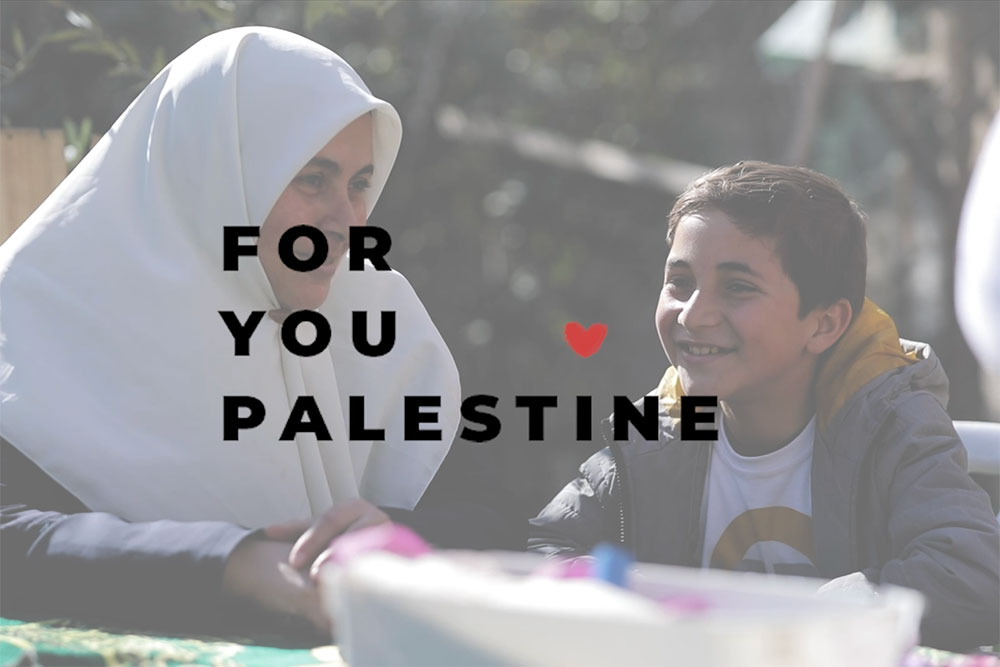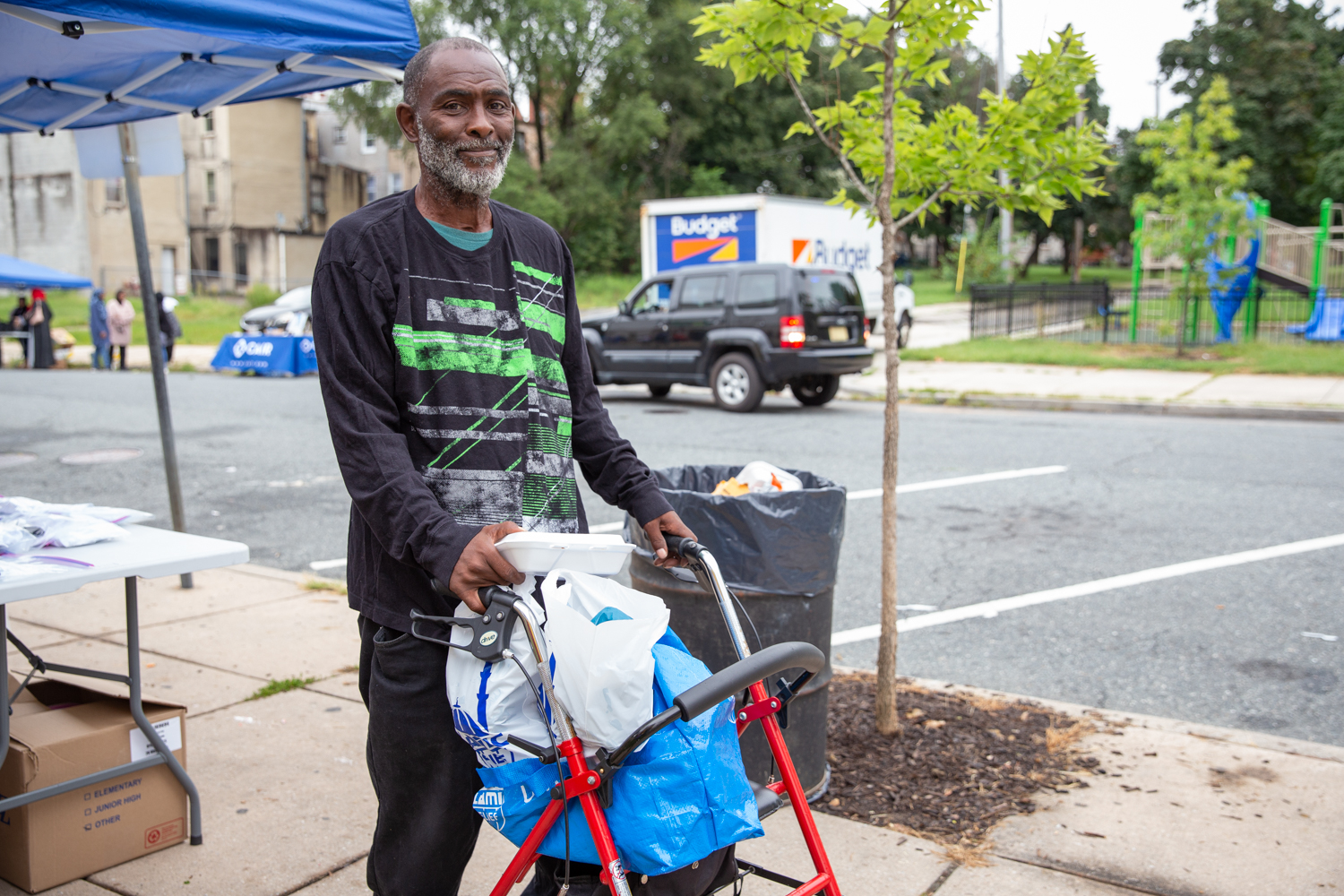A Partner Tribute to Remember
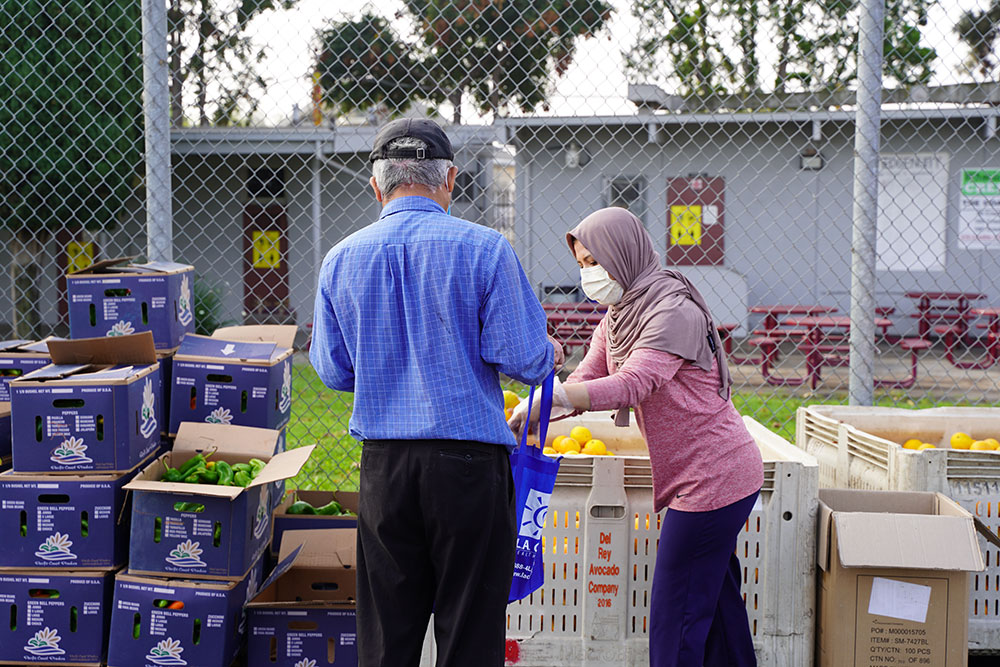
Healing for Hope Event Warms Hearts
Islamic Relief USA held its 4th Annual Partnership event Monday evening, showcasing the organization’s accomplishments in addressing the challenges brought upon by the coronavirus pandemic.
Healing was the theme for this year’s event, which was entirely virtual and livestreamed through various social media platforms. While healing from Covid-19, the disease caused by the novel coronavirus, is among the biggest challenges facing society, the event speakers — a cross-section of leaders of nonprofit, faith-based, and governmental organizations– said there are many other problems in conjunction with the virus that rise to pandemic levels.
They include hunger, racial injustice, lack of health care for millions, and socioeconomic inequities, amongst other things. A sense of optimism and uplift was sprinkled throughout, despite the heaviness of the subjects discussed.
Bringing Hope to Light
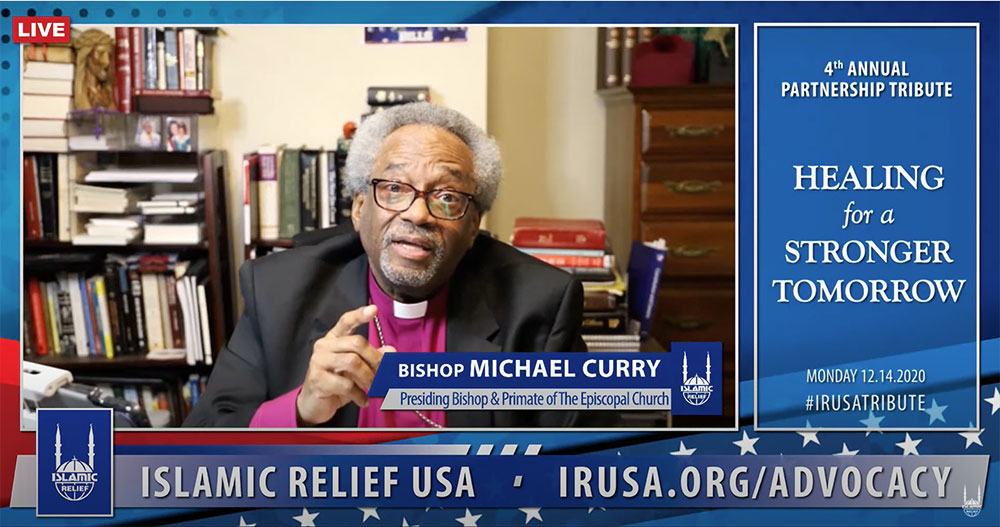
That particularly shone in the rousing remarks by the keynote speaker, Bishop Michael Curry of the Episcopal Church. He said the world now needs “a healing balm,” and he shared some important lessons from “Is There No Balm in Gilead,” a Biblical sermon about the prophet Jeremiah.
The bishop said love is the ultimate balm, and Islamic Relief USA demonstrates that through its work.
“I am personally convinced that love is the way to help us through this year, to help us through the hard times, because love is not selfish,” he said. “Love is not self-centered. Love is not rude or boastful…Love seeks the good, the welfare, the well-being of others, as well as the self.
“That way of living, by the power of love, is what Islamic Relief USA is about, helping those who are in need, no matter who they are,” he continued. “That way of living is how we must live as brothers and sisters on this planet, as people who are created in the image of God.”
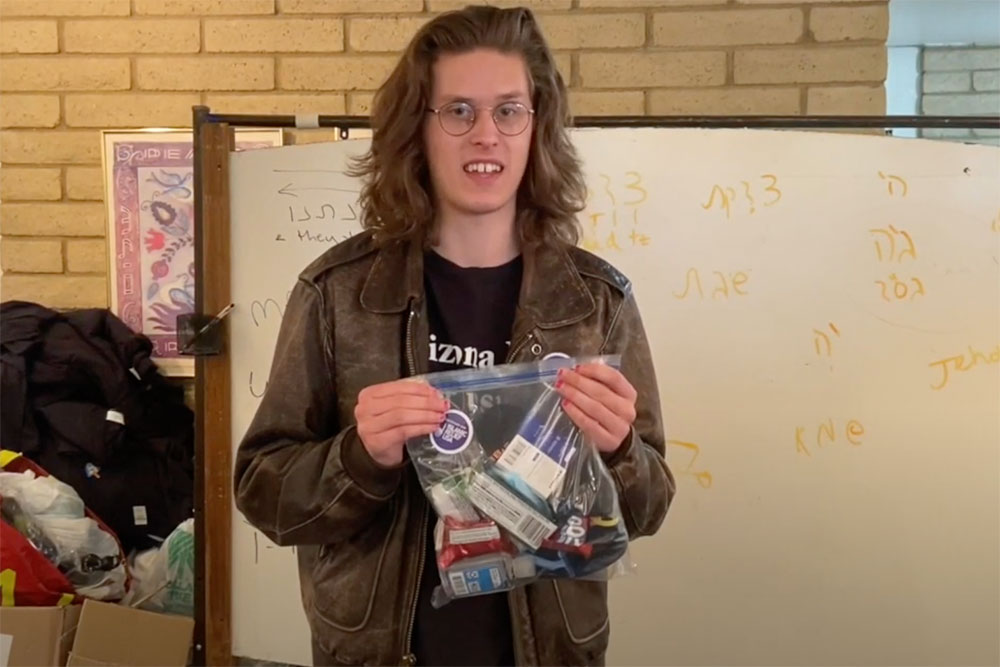
What Partnership Means
Islamic Relief USA President Anwar Khan, who described the partnership event as “a family gathering,” said in the midst of this celebration of partnership, we must remember society’s most vulnerable.
“There’s been a lot of hurting going on in 2020. People are losing their jobs, their income. There are long lines at the food banks, and many people have lost their lives,”
But, he said, these very tribulations have helped foster partnerships, a sense of teamwork, and outright resilience. IRUSA has worked in over 200 cities with some 170 organizations to perform lifesaving work, providing hygiene kits, food boxes, financial assistance, cloth facemasks, among other things.
“Your generosity, your support has gone up,” he said, adding that the IRUSA has also tackled the subject of racial injustice by starting a series where they speak with various African-American officials leading partner nonprofit organizations.
“We need to listen to the communities.”
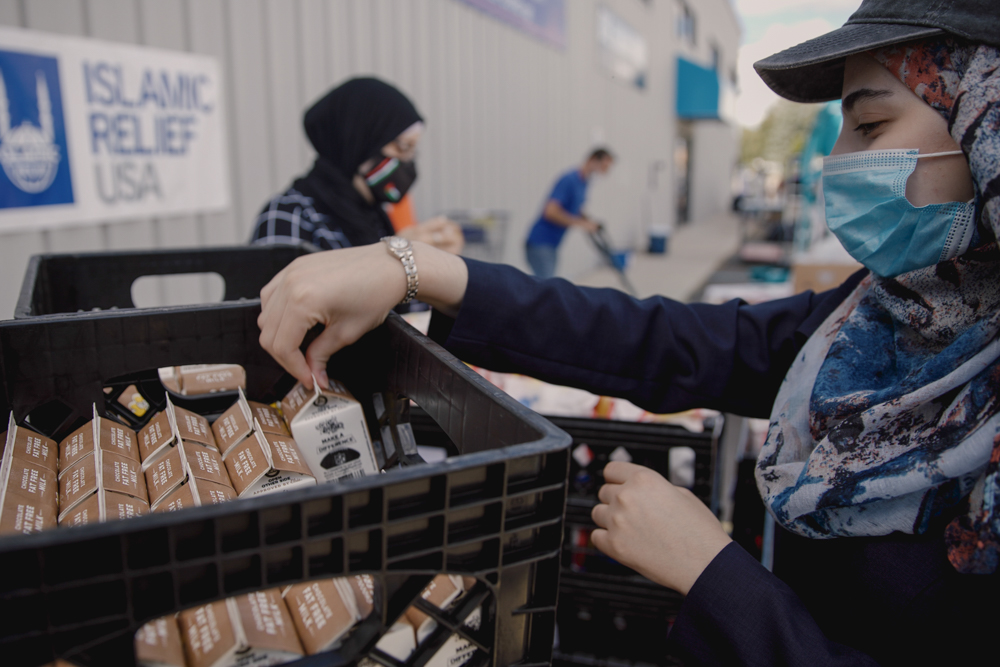
Seeing the Blessings
Islamic Relief USA chief executive officer Sharif Aly described the partnership event as a “blessing,” and credited the partner organizations for helping IRUSA administer humanitarian aid throughout the country.
He said the public health crisis has spawned an economic crisis, resulting in widespread joblessness, heightened levels of food insecurity, and financial instability all across the world. He cited a Brookings Institution report that found that in 26 states, more than one in five households fell behind on their house payments. But thanks to partnerships with more than 170 entities, Aly said that they were able to provide at least some food assistance, financial aid, and other resources to people in more than 200 cities.
“These are the stories that give us our purpose. These are the stories that inspire us to work together, to support each other, to support those most in need.”
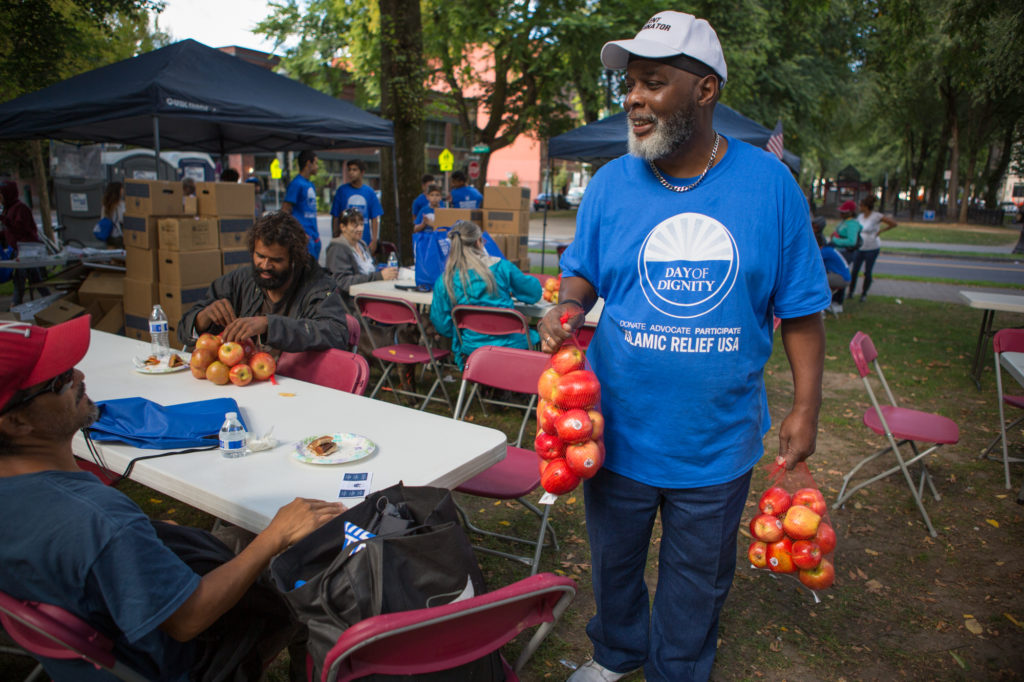
Pointing to Systems Change
Christina Tobias-Nahi, director of public affairs at Islamic Relief USA, said in order to begin addressing systematic injustices, one has to identify the root causes of the problem. This is where advocacy plays a vital role, she said, as it catches the attention of people who can start implementing changes, such as elected officials in Congress, and help the most vulnerable populations.
“Our need to respond to the sick, to the hungry, to those who have been evicted and are living out on the streets, have been disproportionately affecting communities of color and other disenfranchised and marginalized communities,” she said.
Hamadi Bengabsia, a board member with IRUSA, said while 2020 was a challenging year, he remains optimistic.
“There’s definitely a lot to heal from. At the end of the tunnel, there’s definitely light.”
Partner Gratitude
Rabbi Shmuly Yanklowitz of the Valley Beit Midrash, a Jewish education organization, said thanks to IRUSA’s support, they were able to distribute protective cloth masks to underserved populations, such as immigrant women, refugees, asylees, and seniors.
“I have been so moved by Islamic Relief USA, not only because it strengthens our Muslim-Jewish partnership,” he said. “The ability to come together for humanitarian relief is profoundly moving. We have saved lives thanks to your support.”
Austin Davis, a homeless outreach organizer with Arizona Jews for Justice, said IRUSA’s support helped provide care packages consisting of face masks, sanitizer, and various toiletries to people living in tent cities.
“We’re able to provide a little support, a little hope, a little care in this time of great uncertainty,” he said. “Thank you.”
Adel Sayed, the CEO of UMMA Clinic in South Central Los Angeles, thanked IRUSA for its 25 year-long relationship. The organization has provided the clinic personal protective equipment for its frontline workers and financial support to enable the medical center to continually provide high-quality health services.
“This work around the nation is a true testament to their ability to not only provide relief effort internationally, but also focus on community needs at home.”

